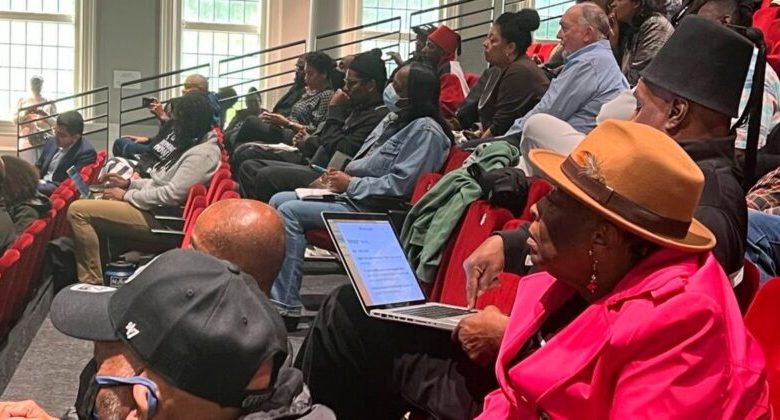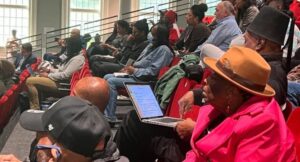California Reparations Task Force voted to advise the state issue a formal apology and more


California’s Reparations Task Force has had a busy two-year period since it was established by Governor Gavin Newsom in 2020. The task force’s mission was to study and collect evidence of the harms of slavery and lingering discrimination. As the task force’s work comes to a close, it is set to deliver its final report to the state Legislature by July 1. Throughout its tenure, the task force has made several impactful recommendations.
During a public meeting in Oakland on April 6, the task force voted to advise the state to issue a formal apology for slavery and provide billions of dollars in cash payments as a form of repair, according to The Los Angeles Times. The recommendations sparked heated debate among various parties.
Before the meeting, the task force determined who would be eligible for reparations. It was decided that reparations would be lineage-based, meaning applicants would need to prove their slave ancestry. The task force limited eligibility based on lineage to individuals who were “African American descendants of a chattel enslaved person or the descendant of a free black person living in the United States prior to the end of the 19th century.”
The task force also recommended that the Legislature establish a new agency called the California American Freedman Affairs Agency, which would be dedicated to implementing the task force’s recommendations that are adopted into law. This agency would be responsible for determining eligibility and assisting individuals in proving their lineage.
The California Reparations Task Force was established by Governor Gavin Newsom in 2020 to study and collect evidence of the harms of slavery and lingering discrimination. After a two-year process, the task force is set to deliver its final report to the state Legislature by July 1. Since its first meeting in June 2021, the task force has made several impactful recommendations, including its latest on April 6. The nine-member panel advised that the state issue a formal apology for slavery and provide billions of dollars in cash payments as a form of repair. However, the recommendations sparked heated debate.
Prior to this meeting, the task force decided on who would be eligible for any reparations. The force said reparations would be lineage-based, meaning applicants would have to prove they have slave ancestry. It restricted eligibility based on lineage as “determined by an individual being an African American descendant of a chattel enslaved person or the descendant of a free black person living in the United States prior to the end of the 19th century.” The task force also recommended that the Legislature create a new California American Freedman Affairs Agency dedicated to implementing the task force’s recommendations that are adopted into law, including determining eligibility and helping people prove their lineage.
During the course of the study, the task force heard testimony from over 133 witnesses, including economists, historians, and other experts who offered suggestions for how to quantify compensation for health disparities, mass incarceration, and housing discrimination against descendants. After the task force concludes its work, it will be up to lawmakers to make the ultimate decision.
Economists recommended calculations for monetary losses in three categories of community harms: health disparities, African American mass incarceration and over-policing, and housing discrimination. For example, compensation for health disparities would come to $13,619 for each year of residency. Compensation for mass incarceration and over-policing of African Americans would be $2,352 for each year of residency in California during the war on drugs from 1971 to 2020. For housing discrimination, it would be $3,366 for each year between 1933 and 1977 spent as a resident of the state of California.
There was also a recommendation about general cash reparations. Black Californians could receive up to $148,099, based on a figure of $3,366 for each year they lived in California from the early 1930s to the late 1970s when federal redlining was most prevalent. According to a draft of the final report, the recommendations are “a range of policies needed to guarantee restitution, compensation, rehabilitation, satisfaction, and non-repetition.”
Among them: Repeal or amend Proposition 209, a measure that banned affirmative action in the state in 1996; pay fair market value for jail and prison labor; funding for community wellness centers in African-American communities; the restoration of voting rights to all formerly and currently incarcerated people; a rent cap for historically redlined ZIP Codes; and an increase in grants and financial assistance to improve homeownership rates among African Americans, including subsidized down payments and mortgage payments to those who reside in formerly redlined neighborhoods.
The task force will meet one last time in Sacramento on June 29 before sending its recommendations to the Legislature. Kamilah Moore, the chair of the task force, is optimistic that lawmakers will take a look at the proposals and engage in a good faith effort to implement them.





